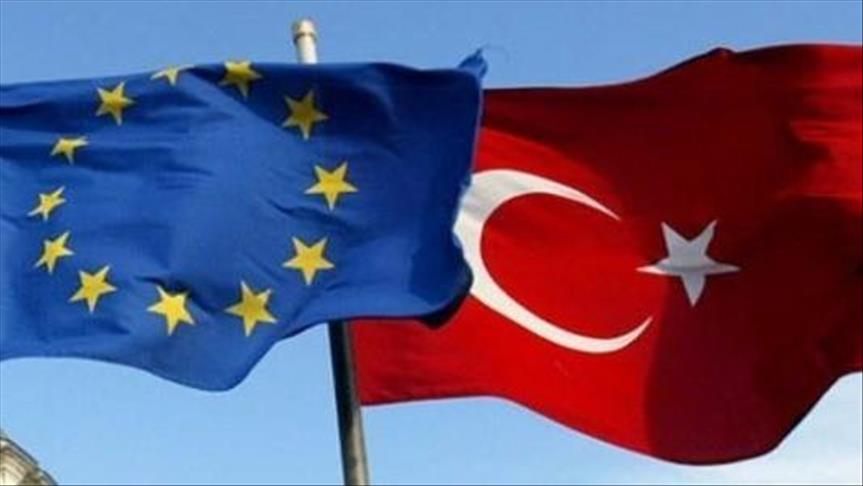
Greater London
LONDON
Turkey is needed by Europe in a range of fields from the Syrian civil war to relations with Russia, according to a respected foreign affairs analyst.
Rem Korteweg, a senior research fellow with the London-based Centre for European Reform (CER), told Anadolu Agency that last Sunday’s EU-Turkey summit showed that the European Union needed Turkey as much as Turkey needed the EU.
“For Europe these days all roads lead to Ankara,” Korteweg said, adding that Turkey was the “key country” for matters ranging from the refugee crisis to counter-terrorism measures, and from the Syrian civil war and energy security to relations with Russia.
However, he added that Turkey needed an economy that grew in parallel to its increasing population and that it needed the European Union in order to enact reforms which will attract trade, finance and foreign capital.
The EU has a “transaction-based approach” to its dealings with Turkey and the deal struck between the two sides to open membership chapters for negotiation of Turkey stems the flow migrants to Europe was a risky approach for both sides, he said.
It had to be questioned how possible it was for Turkey to wholly stop the flow of migrants to Europe.
“If the agreement regarding migrants does not come into force, this could threaten the benefits that Turkey expects to receive in return. This could bring about a delay to visa-free travel [planned for Turkish citizens for October 2016],” Korteweg said.
The analyst also criticized the approach that considers Turkey to be a kind of “buffer zone”, questioning whether Turkey would be prepared to play this role and the impact it would have on its domestic affairs.
Russia’s expansionist policy was an important factor in the fresh ties between Turkey and the EU, with the annexation of Crimea being a particular turning point.
“After Russia annexed Crimea in 2014 the EU decided to reduce its dependence on Russian gas. The route for gas from the Caspian Sea, Iraq’s Kurdish region and Iran – all of which are alternatives to Russia – must pass through Turkey. That is why Turkey has become a critically important energy partner for the EU, thanks to the Kremlin,” Korteweg said.
Gustav Gressel, an analyst for the European Council on Foreign Relations (ECFR), said the support given by the EU to Turkey’s decision to defend its air space was intended as a message to Moscow.
“Even though some EU countries disagree with Turkey on the matter of Kurds in Syria, this does not mean they will hesitate when it comes to invoking NATO’s article 5 [on collective defense]. Putin must understand this,” he said.
Gressel’s ECFR colleague, Angeliki Dimitriadi, added that Turkey had some important cards in its hand that it could play.
“There is no doubt that Turkey is a critical actor for the EU in both managing the present flow of migrants and in the general management of migration,” she said, but warned that the latest deal between the two sides was not unconditional.
“Turkey must give assurances to Syrian migrants of a certain standard of living and to allow them to enter the workforce. If Turkey does not do what is expected of it, it will be difficult for the EU to transfer the funds it promised.”
On the opening of new negotiating chapters, Dimitriadi said the talks would begin and certain chapters would open but that there would be a very long process to follow.
However, she also described the EU-Turkey summit, which took place on Nov. 29, as delivering a balanced outcome.
The summit had pointed to Oct. 2016 as a target date for visa-free travel for Turkish citizens within the Schengen zone. It also pledged to open Chapter 17 of Turkey’s accession negotiation – a chapter that covers economic and monetary policy – on Dec. 14.
Turkey was also promised €3 billion [$3.2 billion] in funding to help support the Syrian migrants.
Anadolu Agency website contains only a portion of the news stories offered to subscribers in the AA News Broadcasting System (HAS), and in summarized form. Please contact us for subscription options.







